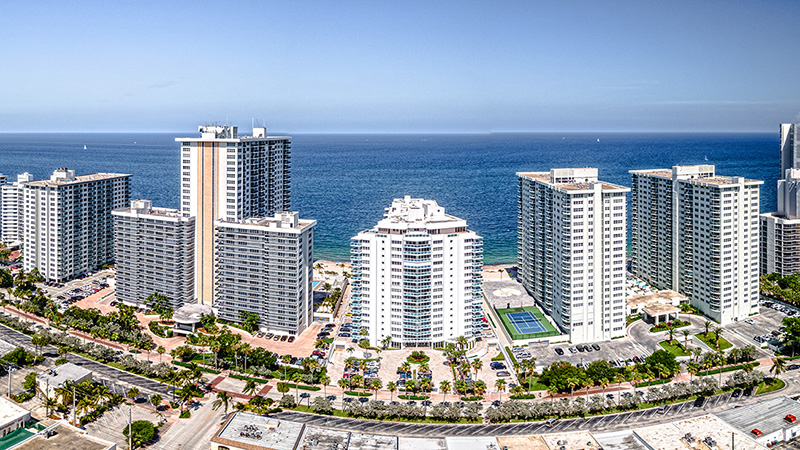Condo vs. co-op: Key Differences Every Homebuyer Should Know
Condo vs. Co-op: Making the Right Choice
Discover the essential differences between condos and co-ops to make an informed decision on your next home purchase in the bustling city.

Understanding the Differences
Why Knowing Condo and Co-op Differences Matters
In a fast-paced urban environment, choosing the right type of home is crucial. Understanding the key differences between condos and co-ops can significantly impact your buying decision. From ownership structures to financing options, each type offers unique benefits and challenges. This knowledge is essential for homebuyers looking to invest wisely and find a property that aligns with their lifestyle and financial goals.
Key Differences in Ownership and Structure
Ownership
In a condo, you own your individual unit and share ownership of common areas. In a co-op, you own shares in a corporation that owns the building, giving you a lease to occupy your unit.
Structure
Condos offer individual ownership of units, while co-ops involve collective ownership, where residents share control over the property.
Financing
Condos are generally easier to finance, with more lenders willing to offer loans. Co-ops may require higher down payments and can be more challenging to finance.
Monthly Fees
Co-op fees often cover the building’s mortgage, property taxes, and utilities. Condo fees typically include maintenance and amenities only.
Rules and Regulations
Co-ops have stricter rules and require board approval for buyers, while condos have fewer restrictions but are starting to adopt similar rules.
Community
Co-ops foster a strong sense of community due to collective ownership and stricter rental policies. Condos offer more flexibility but may lack the same level of community cohesion.
Financial Considerations
When it comes to financial aspects, condos and co-ops present distinct differences. Condos generally have higher purchase prices per square foot but offer more straightforward financing options. Buyers can secure traditional mortgages with relative ease. Co-ops, on the other hand, often have lower purchase prices and closing costs. However, securing financing can be more challenging as lenders may require higher down payments or be more selective in offering loans.
Monthly Fees
Monthly fees for condos and co-ops also differ significantly. Condo fees typically cover maintenance of common areas and amenities, while co-op fees may include the building’s mortgage, property taxes, and utilities. This can make co-op fees appear higher, but they often encompass more services. It’s crucial to consider what these fees cover when comparing the two options.
Tax Implications
Property taxes can also vary between condos and co-ops. Co-op owners might benefit from lower property taxes, but they need to account for the financial health of the co-op corporation. In contrast, condo owners pay property taxes directly on their individual units, which can sometimes result in higher tax bills. Understanding these nuances is essential for making an informed financial decision.
Regulatory Differences
Approval Processes
One of the most notable differences between condos and co-ops is the approval process for prospective buyers. Co-ops typically have stringent approval processes managed by a co-op board. This board reviews financial stability and adherence to co-op regulations, which can delay or even prevent a sale if a buyer is not approved. Condos, in contrast, usually have fewer restrictions, making the buying process quicker and less cumbersome.
Community Dynamics
Rental Policies
Making the Right Choice: Condo vs. Co-op
Deciding between a condo and a co-op involves weighing various factors. Condos offer individual ownership and easier financing, making them ideal for those who value independence and flexibility. Co-ops, with their collective ownership model, foster a strong sense of community but come with stricter rules and a more involved approval process.
Consider your lifestyle and financial situation carefully. If you prefer a tight-knit community and don’t mind rigorous approval processes, a co-op might be the right fit. If you seek more freedom and easier financing, a condo could be the better option. Understanding these distinctions will help you make an informed decision.
Rules and Regulations
Co-ops have stricter rules and require board approval for buyers, while condos have fewer restrictions but are starting to adopt similar rules.
Both co-ops and condo buildings offer rules and regulations to ensure the equity in your property is protected and preserved. However, you will find that most condos offer more flexibility to rent out units, which makes it a better investment property than a co-op usually. Buyers that seek out a co-op over a condo usually appreciate the increased security and privacy and are not looking to rent it out. While every building is managed individually, usually co-op buildings offer more involvement and more say to owners about any major decisions, while in a condo building usually the board makes most decisions.

Explore Luxury Real Estate in West Palm Beach
Ready to find your dream home in West Palm Beach? Our team specializes in luxury real estate and is here to guide you through every step of the buying process. Whether you’re interested in a condo or a co-op, we have the expertise to help you make the best choice for your lifestyle and investment.












